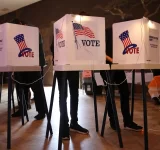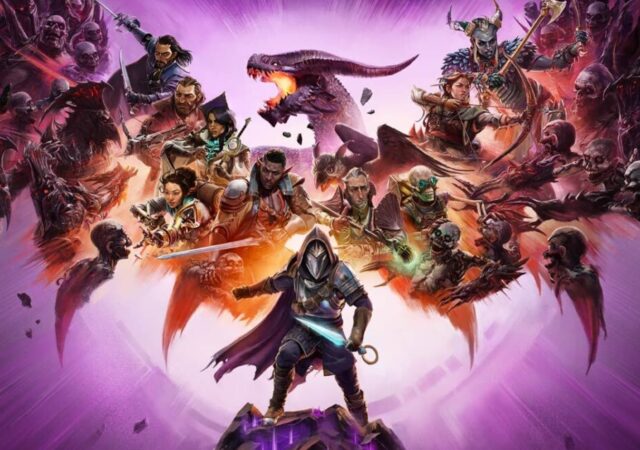Civilians love to believe they decide everything for themselves. Especially in modern history, people did not like thinking they were being rigorously controlled. We wanted power in our own hands. We loved the French Revolution, standing up for ourselves. We boasted our democratic system and believed we were sensible enough to make our own judgments. But if that were true, how did a lone ex-German soldier single-handedly hypnotize mass Germans into hating Jews? How did Joseph Stalin continue an unlawful torture asylum named the Gulag? What actually gave Benito Mussolini the power to bewitch Italians?
Power is a Curious Thing
Fascism does not descend upon people overnight with a fascist billboard. They, at first, ascend with people’s votes. Hitler’s Nazi Party was elected through democratic voting. How fascists build up from there is something to understand. Jason Stanley, author of How Fascism Works, defines fascism as “Power-loyalty and fear to others”. Fascists always communicate in a tone of reviving the golden past, getting back what was “rightfully” theirs, snatching victory from those who wronged them. Benito
Mussolini was a great example of using such a scheme. He used emblems of the ancient Roman Empire to build his political flag. Donald Trump urged people to make America great again, and Hitler provoked the Germans to bring back Aryan glory.
This pattern of behavior was common in Europe after nations saw the brushes of World War I and how it could impact their self-interest. The entire chronicle of Hitler’s rise to power was based on the infamous Treaty of Versailles (1919) and its negative impact on the German economy.
To establish a fascist state, it is necessary to create a clear hierarchy inside the nation. It may not happen overnight, but slowly, every autonomous and apolitical institution of the country is politically manipulated in one direction. In every high rank of important institutions, the government strategically positions venal officers who will pledge loyalty to the regime over their duty to the flag. These are the people who “apparently” serve the nation corruptibly, willing to follow any orders from the high command without question, and serve as “yes men” to their whims in exchange for unfair benefits and superior positions in the hierarchy of power. On the other hand, sincere people who question or criticize the high command are either removed, detained with false allegations, or sidelined in their careers.
Similarly, any social group that disagrees or questions government decisions is instantly deemed anti-nationalists and traitors to the nation. It is like tagging someone a “Rajakar” for criticizing anything problematic in Bangladesh.
Some pressure groups, whether pro-right or pro-left, support the glorious history of the incumbent ruling party and actively praise any decision of said party. They use their vocal power to gain media attention and subdue any critical question or judgment from the general public against the regime’s policies. Therefore, such groups also seem to enjoy their upper position in the hierarchy over dissidents.
When Mussolini won the election by gaining 66% of the vote, he oppressed opponent newspapers, banned public protests, labor unions, and strikes, creating a political police force—a complete totalitarianism. But strangely, he did not face harsh complaints from elite societies. Elite societies were mostly business leaders and industrialists who wanted to subdue labor voices. Keeping the labor unions’ or critiques’ voices down benefits rich conglomerates and yields satisfactory results for their high-capital political lobbying.
Hitler and Mussolini both had the idea of creating youth organizations where they introduced physical training, fed propaganda against the national ‘enemy,’ and encouraged them to fight for their country and their one supreme leader.
Thus, patriotism was repackaged as blind loyalty to the leader of the nation. The leaders wanted to set up a zero-accountability culture with future generations.
It is important to note that these leaders did not rise without public support. Hitler gained popularity, and so did Mussolini and Trump. These leaders grew more powerful each day. Whatever they did, wherever they went, they received claps and validation that encouraged them to believe they could not be wrong. And thus, the cult culture rises. Narendra Modi, despite his vicious statements of bigotry against Muslims, is treated as a lord savior by the typical middle-class, semi-educated Indian civilians. When these leaders systematically insert hate speech against any community, whether against Jews, LGBTQIA+ people, or Muslims, their clout emboldens their claims. Consequently, hate crimes and violence rise significantly against such marginalized communities.
Hope is what Keeps Us Alive
When we try to incorporate every component discussed above in a modern setting, it seems obvious that fascism cannot regain power anymore. The general public of modern times is more open to communication than ever before; they have way too many sources of information. Propaganda is easier to debunk. People are willing to practice their civil and humanitarian rights. People are more rationalized, and they do not desire extreme bloodshed, nor do they believe they are the ‘Master’ race, right? Well, it might not be the case.
During the 2016 United States presidential election, we saw how Donald Trump proclaimed that the United States was a great nation before, and how that glory was being snatched by Liberals, Mexicans, African Americans, and Asians. The discussion of building a wall on the US-Mexican border was a key topic of Trump’s campaign. Guess what? Trump won that election.
In today’s Bangladesh, we witnessed a general protest against a discriminatory Freedom Fighter quota system which accumulated up to 30% in the recruitment of government employees. Even after 53 years of the Liberation War, we saw how the protagonists of such derogatory quota facilities claimed that their ancestors showed true valor, which legitimizes the extra claim the grandchildren and further successors are entitled to have in a recruitment exam.
This was an example of how a part of society relentlessly corroborated any government decision. Overconfident with their blind support in the educated community, the government was not afraid to impose a brutal crackdown on peaceful protesters. But it backfired, resulting in the fall of a 15-year-old regime.
We see how the dispute over Ram Mandir and Babri Masjid of India culminated in the decision to dismantle the mosque to rebuild the temple it ‘replaced’. Millions of Hindus in a Hindu-majority country believed it was crucial to their core identity to have yet another temple built by breaking down a sacred place of another religion. Ultra-nationalistic behavior is not a rare phenomenon, as we see it.
Humans may love peace, but they can be easily manipulated. They have their own cognitive biases lurking under the surface. People may have many options for information, but as long as you can use emotional tools to recreate the nationalistic urge, the feeling of being robbed of their ‘rightful claim’—you can induce justification of hierarchy, of regaining the mythic past at the cost of others, and even voting for someone who provokes communal violence.
Does that mean the rise of fascism is inevitable if a political party uses such a tool and bars any fair election for too long? No, we still have our last hope—open sources of education.
As long as the masses are open to free, unbiased sources of information, as long as they have access to neutral, open-platform discussions, as long as the fear of being abducted or harmed does not prevail over the voices of impactful individuals (teachers, journalists, content creators, diplomats)—the rise of fascism can be stopped any day.
All we need to do is, when fascists come knocking at our door demanding absolute loyalty in exchange for national development, we practice to ask politely, “why?”






















